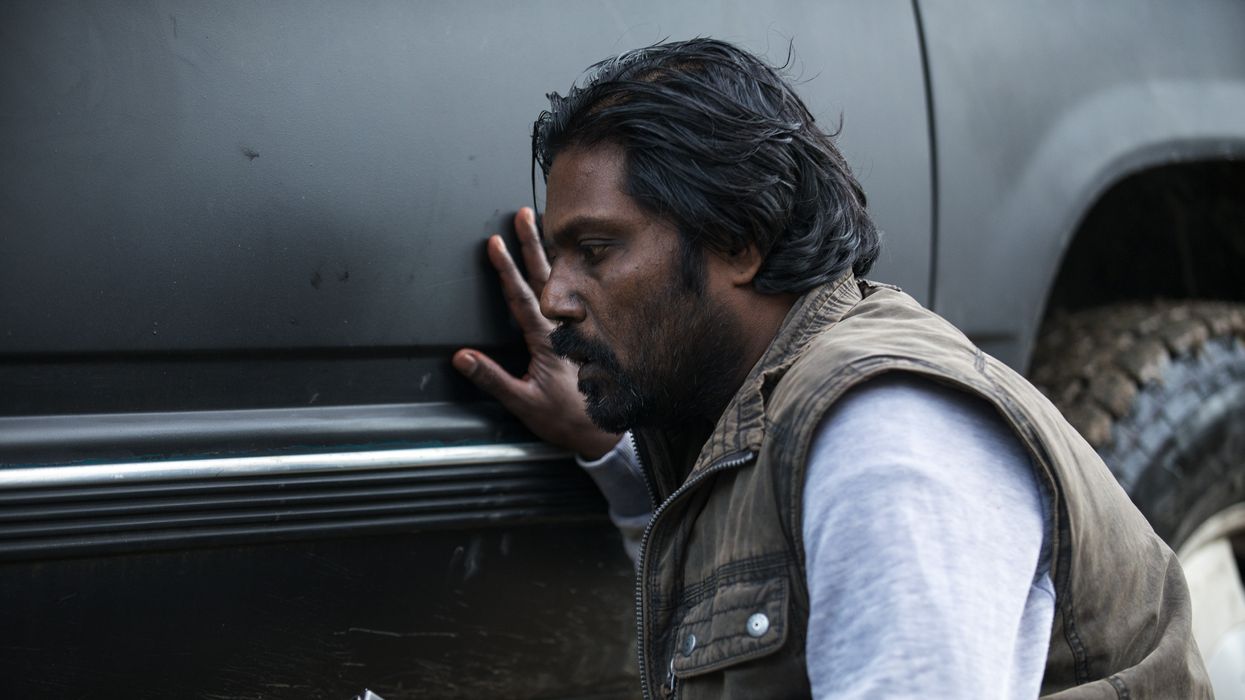'Messing with the Machine': Jacques Audiard on Palme d'or-Winning 'Dheepan'
"The genre of the film slowly evolves at the same rate that the characters are evolving."

French auteur Jacques Audiard (A Prophet, Rust & Bone) sat down with No Film School at AFI 2015 to discuss his Cannes Film Festival-winning Dheepan, the story of a Sri Lankan refugee who is relocated to the projects of France. The film is currently in theatrical release in the U.S. Audiard talks casting (the film stars first-time actor Jesuthasan Antonythasan), violence in cinema, and why compromise is part of creativity.
NFS: I'm fascinated by realism in film and the use of non-actors. Bresson would say of his actors, "I am inventing you as you are." How did you approach the casting for Dheepan?
Audiard: There is a misconception that actors are cast because they are already the part. There is always a gap between the actor and the character. The actor still has to create the character. Many times with these kinds of actors I just have to tell them to calm down. I sometimes try to make it not intellectual—not psychological, but physical.
"That is a system within itself: to be able to mess with the machine and see what spontaneously comes up."
NFS: At the center of the film is the main character creating a line in the sand. How did you arrive at this device for the story?
Audiard: The genre of the film slowly evolves at the same rate that the characters are evolving. What starts off as a war film becomes almost like a documentary look. It is the director drawing a line, saying "if we cross this line, we enter another genre of film."
For example, in A History of Violence, there is a scene where a father and son kill four or five people in front of their house and then the policeman comes and says, "Did you have a problem here this afternoon?" Then he fucks his wife in the staircase. It's an incredible moment in cinema. In that moment, the director is asking the audience to transcend the limits of disbelief. It's the director communicating to the audience.

NFS: How do you view and use violence as a cinematic tool?
Audiard:There are elements in all works of cinema between realism and convention. Jean Luc-Godard said that cinema is telling the truth at 24 frames per second; capturing moments of reality. Because a lot of my films are based on realism, the two elements that take it back to cinema and away from realism are love—the actors are not penetrating, there's a suspension of belief, unless your name is Gaspar Noé—and secondly, violence, because the bullet is not killing the actor, the punch is not disfiguring the actor. So what that does to the spectator is it makes the spectator enter into a convention. It brings the film back into a sense of cinema.
"What is important or not important subject matter—you have to get out of that logic because it will chase its own tail."
NFS: Are there certain philosophies or rules that you've developed that stick with you, or is every project a new philosophy, a new shifting ideal?
Audiard: I would hope that I have a capital of experience to draw upon each time, but why is it that there's fear or worry at every new project? Each experience will not be the same, yet on the set I realize that there is a knowledge or an ease at resolving problems. People see that and know that I can work it out. I have enough comfort and ease to be on set and mess with the machine—perhaps to rewrite the scene we are shooting next. Having the whole crew slide down with me and adapt to these changes is the exciting part of creating. It's almost like surfing. Maybe that is a system within itself: to be able to mess with the machine and see what spontaneously comes up. It's perverse.

NFS: Is there such a thing as important subject matter an unimportant subject matter? What do you define for yourself as important?
Audiard: In terms of what is important or not important subject matter, you have to get out of that logic because it will chase its own tail. Perhaps where to place your attention is in the interstitial parts of life, of art.
For example, it's less interesting to look at cinema and see the formal evolution of cinema. In the last five or 10 years in the video world, there are people exploring in that space where there hasn't been exploration yet and so much creativity is happening. So if you look at that, you're looking at a different part of the story. It's almost like two tectonic plates that are in opposition and there's a line between these forces. So what if you place yourself on this line and you look to the left and right: what do you see? What do you feel? It's in the in-between.
NFS: If film is the art of compromise, what elements are you willing to compromise more than others?
Audiard: I don't see it as compromising as much as arbitrating. Before you let go of something, there's a negotiation, there's a tradeoff. If there's a point where you're compromising too much, then don't do it. But the arbitration of it is coming up against the limit, and sometimes having limits helps the creativity.












